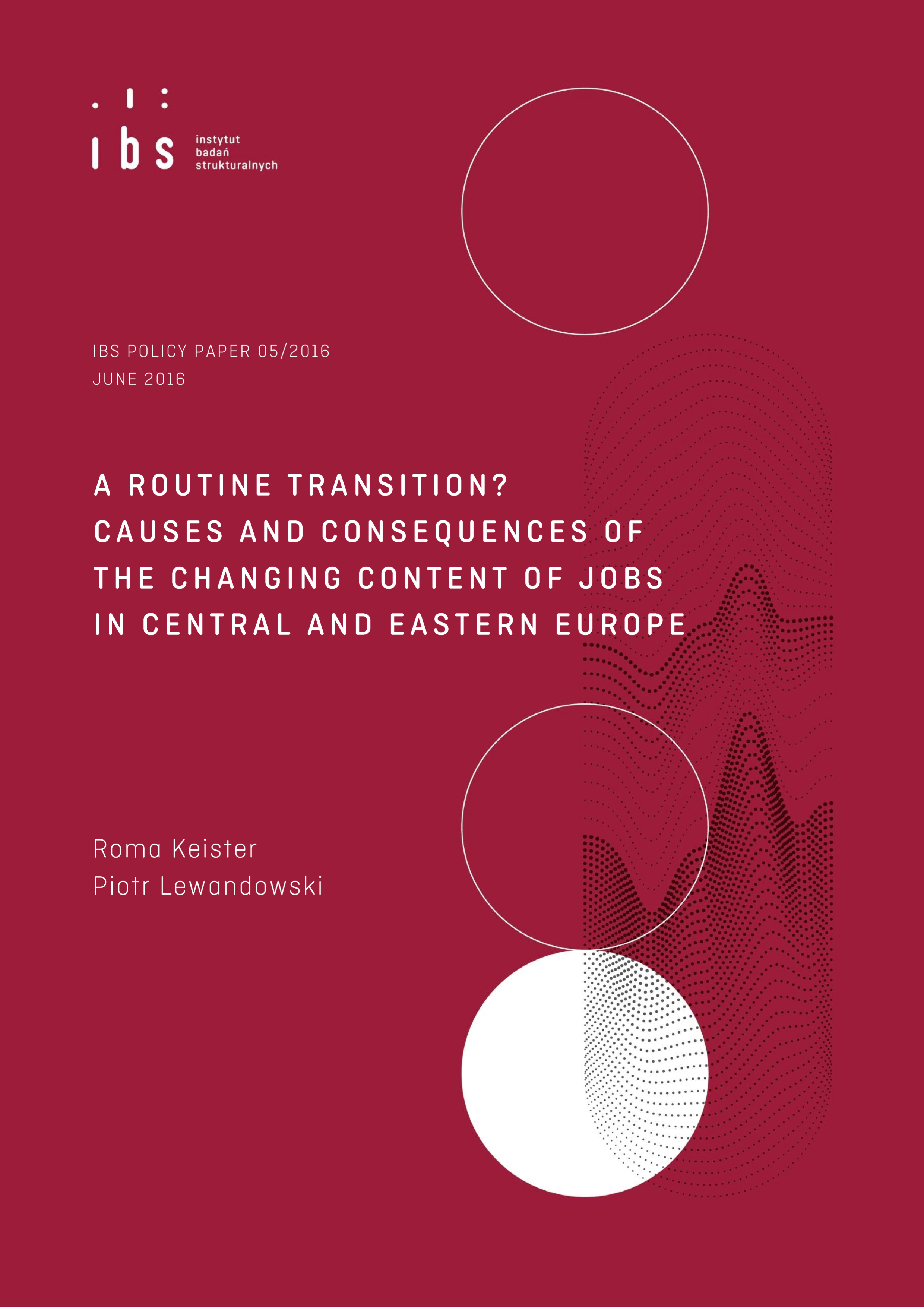In this paper, we study the shift from manual to cognitive work in 10 economies of Central and Eastern Europe. We highlight the growth in the non-routine cognitive component of jobs, but pay particular attention to the increase in routine cognitive tasks, a trend that is pronounced in the CEE economies but absent in the most advanced economies. We show that workforce upgrading and structural change were the main factors behind the increase in all cognitive tasks, but that the growth in routine cognitive tasks is partly attributable to rising shares of routine-intensive occupations. We identify two groups of workers whose jobs depend most on performing routine cognitive tasks: middle-skilled men in the manufacturing sectors and middle-skilled women in the service sectors, who jointly represent 33% of workers in CEE. We find that robust employment and wage growth among routine cognitive workers has so far prevented job polarisation in CEE. However, the relative prices of routine cognitive tasks are already higher than those of other tasks. If the prices of routine cognitive tasks rise further while technological progress continues, routine intensive employment may gradually decline. We conclude with the policy implications of our findings.

We would like to thank Szymon Górka for his excellent research assistance and Wojciech Hardy for his many helpful suggestions. This paper was financially supported by the Network for Jobs and Development initiative under the auspices of the World Bank. The usual disclaimers apply. All errors are our own.

